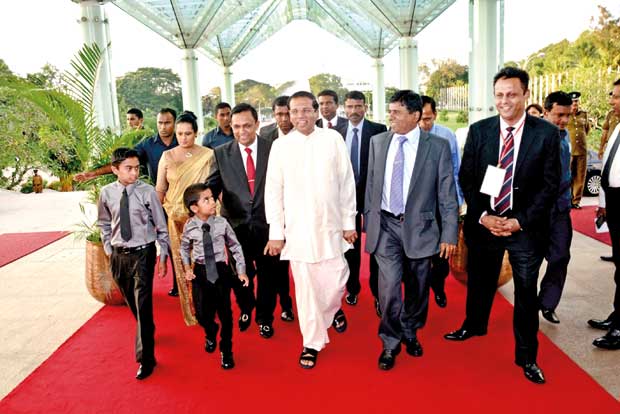Reply To:
Name - Reply Comment
Last Updated : 2024-04-23 10:50:00
_DM-12-Y.jpg) ali Mavena Aparadayak’ is a book authored by Additional Solicitor General (ASG) and President’s Counsel Sarath Jayamanne and is an attempt to fill a void of Sinhala literature on the subject of criminal law and centres around thinking differently in relation to the law. The Daily Mirror was in conversation with the ASG regarding the role of his book and the impact it will have on the criminal justice system of Sri Lanka.
ali Mavena Aparadayak’ is a book authored by Additional Solicitor General (ASG) and President’s Counsel Sarath Jayamanne and is an attempt to fill a void of Sinhala literature on the subject of criminal law and centres around thinking differently in relation to the law. The Daily Mirror was in conversation with the ASG regarding the role of his book and the impact it will have on the criminal justice system of Sri Lanka.
_New-DM-11-IN(1).jpg) such a learning. I have lectured at Law College as well as the University of Colombo, therefore, I decided to use my experience in a novel way. I have been the prosecutor in several noteworthy cases such as the Kobeigane Beauty Queen Murder case, the Hokandara murder of six members of the same family, the Tony Martin case where there were no eye witnesses, and the Sarath Ambepitiya assassination in 2005.
such a learning. I have lectured at Law College as well as the University of Colombo, therefore, I decided to use my experience in a novel way. I have been the prosecutor in several noteworthy cases such as the Kobeigane Beauty Queen Murder case, the Hokandara murder of six members of the same family, the Tony Martin case where there were no eye witnesses, and the Sarath Ambepitiya assassination in 2005..jpg) Daya Perera and Mr. Colvin R. de Silva. It is essential that we use the right hemispheres of our brains as well since this brings about creativity. True genius is born when both sides are used effectively together as was the case with both Leonardo da Vinci and Mozart who used mathematics in expressing their respective art forms. This need is not helped by the current education system which focuses on compartmentalization. What is lacking therefore is the ability to think.
Daya Perera and Mr. Colvin R. de Silva. It is essential that we use the right hemispheres of our brains as well since this brings about creativity. True genius is born when both sides are used effectively together as was the case with both Leonardo da Vinci and Mozart who used mathematics in expressing their respective art forms. This need is not helped by the current education system which focuses on compartmentalization. What is lacking therefore is the ability to think.
Add comment
Comments will be edited (grammar, spelling and slang) and authorized at the discretion of Daily Mirror online. The website also has the right not to publish selected comments.
Reply To:
Name - Reply Comment
On March 26, a couple arriving from Thailand was arrested with 88 live animal
According to villagers from Naula-Moragolla out of 105 families 80 can afford
Is the situation in Sri Lanka so grim that locals harbour hope that they coul
A recent post on social media revealed that three purple-faced langurs near t

21 Apr 2024